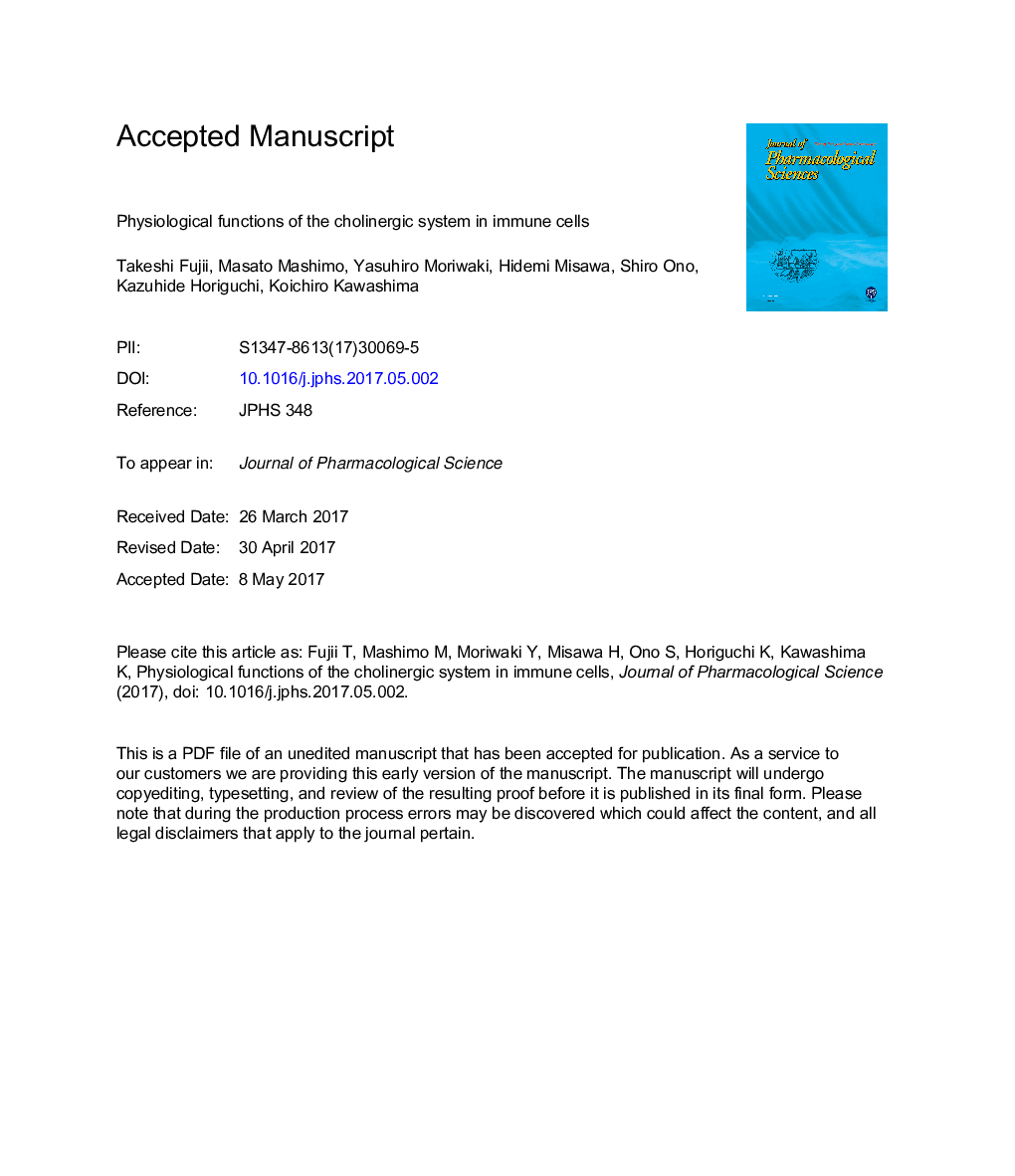| Article ID | Journal | Published Year | Pages | File Type |
|---|---|---|---|---|
| 8533191 | Journal of Pharmacological Sciences | 2017 | 60 Pages |
Abstract
T and B cells, macrophages and dendritic cells (DCs) all express most of the components necessary for a functional cholinergic system. This includes choline acetyltransferase (ChAT), muscarinic and nicotinic acetylcholine (ACh) receptors (mAChRs and nAChRs, respectively) and acetylcholinesterase (AChE). Immunological activation of T cells up-regulates cholinergic activity, including ChAT and AChE expression. Moreover, toll-like receptor agonists induce ChAT expression in DCs and macrophages, suggesting cholinergic involvement in the regulation of immune function. Immune cells express all five M1-M5 mAChR subtypes and several nAChR subtypes, including α7. Modulation of antigen-specific antibody and pro-inflammatory cytokine production in M1/M5 mAChR gene-knockout (KO) and α7 nAChR-KO mice further support the idea of a non-neuronal cholinergic system contributing to the regulation of immune function. Evidence also suggests that α7 nAChRs are involved in suppressing DC and macrophage activity, leading to suppression of T cell differentiation into effector T cells. These findings suggest the possibility that immune function could be modulated by manipulating immune cell cholinergic activity using specific agonists and antagonists. Therefore, a fuller understanding of the immune cell cholinergic system should be useful for the development of drugs and therapeutic strategies for the treatment of inflammation-related diseases and cancers.
Related Topics
Health Sciences
Pharmacology, Toxicology and Pharmaceutical Science
Pharmacology
Authors
Takeshi Fujii, Masato Mashimo, Yasuhiro Moriwaki, Hidemi Misawa, Shiro Ono, Kazuhide Horiguchi, Koichiro Kawashima,
